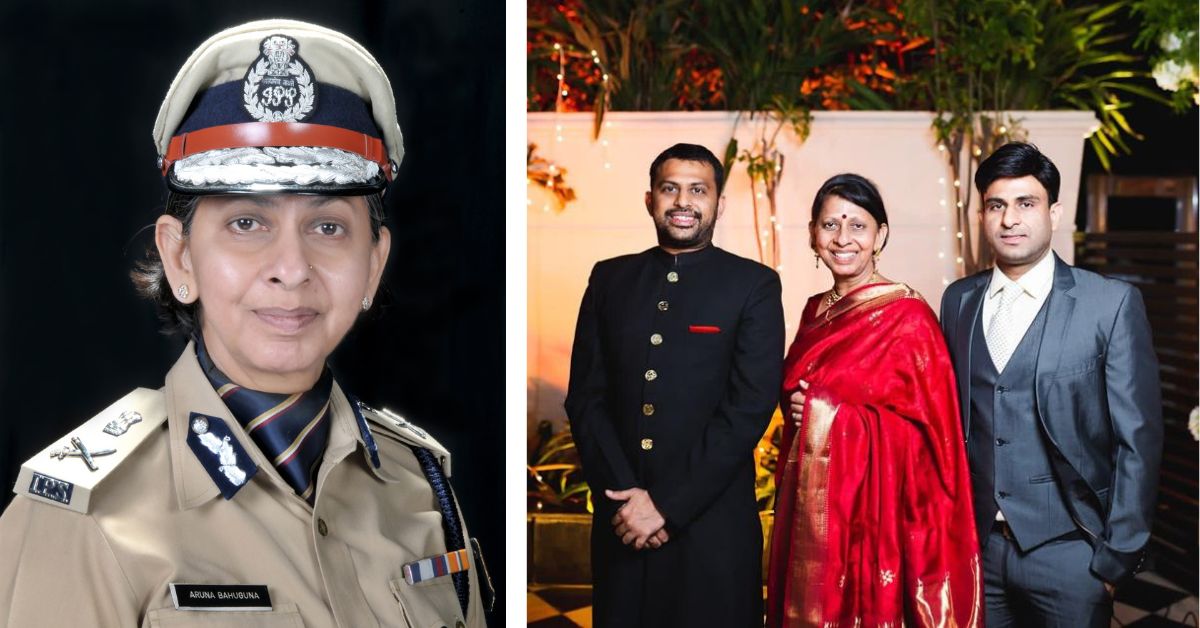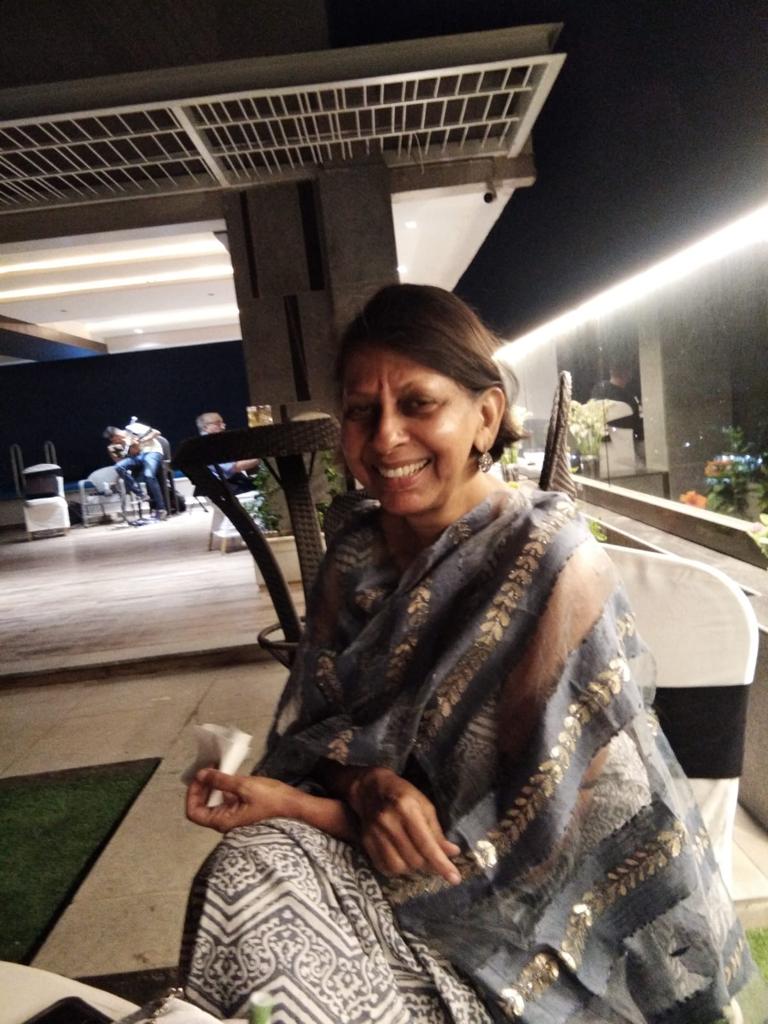‘Was Shamed for Taking Maternity Leave’: My Journey of Becoming Andhra’s First Woman IPS
Among the first women in India to enter and transform male bastions, Aruna Bahuguna shares her journey of becoming united Andhra Pradesh’s first woman IPS officer, and the sexism she had to challenge throughout her career.

It was the year 1978, and independent India, just over three decades old, was blooming with change.
It was also a time when women slowly began coming out of their shells and working in fields that were otherwise considered male bastions. In fact, just a few years prior in ‘72, India had seen her first woman IPS officer — Kiran Bedi.
For young Aruna Bahuguna, this was an inspiring time to join the force.
Throughout her life, she had seen women in her house take up and excel in roles and jobs considered “unconventional” for their time. Her grandmother, she recalls, was the first woman principal of Women’s College in Koti, Hyderabad.
“Widowed at the age of 15, my grandmother paved her way through the world alongside raising her son, and she was my greatest inspiration. My mother was a journalist. Even at a very young age, I knew I would be a working woman; I would have a career,” she recalls.
And in the trajectory of this career, Aruna would achieve many milestones. In 1979, she created history as united Andhra Pradesh’s first woman IPS officer. In conversation with The Better India, the 65-year-old shares her journey.
‘No place for a woman’
Aruna says that when she decided to join the force, her decision was met with scepticism and opposition. “My interviewer said to me ‘Why do you want this? It’s no place for a woman’.”
Regardless, she sat for the UPSC exam in 1978 and cleared it on her first attempt.
Being the only woman in her batch, things were not easy.
“There were no standards for training for women. There had not been any women candidates so far, so, I was treated like a man. Uniforms were never of my size; I always wore shoes that were two sizes bigger than my feet. I used to stuff my cap to make it fit on my head. I was being encouraged a lot but things were still difficult as the only woman in the batch,” she says.
What kept her going was her father’s motivation. “I was raised in a house with men working in vardi (uniform). My father served as an IAS officer in the Maharashtra cadre and watching him was a great motivation,” she says.
Aruna notes that even when she joined the force, her problems did not end. “As a woman, I felt the need to be better or equal to my male counterparts in every way possible,” she says.

“After joining the force, physically it was quite overbearing. I was sent to a rural area and there was no place to stay. I slept on a veranda and sometimes on a chair in a random government school building. There were no washrooms for me to use in most cases,” she recalls.
She was also shamed for taking maternity leave.
“The second time when I went to ask for maternity leave, the reaction was ‘Again?’ In those days, it used to be just three months, so in combination with two pregnancies, I had to take six months of leave, which was a big deal back then,” she recalls.
Things became even harder in 1989 when, in less than a decade of being married, Aruna lost her husband in an accident. Now widowed, she was faced with a mountain of responsibilities — both as a single mother of two, as well as a police officer.
“Although my family was a massive support, I was a single mother. Looking after children is a huge responsibility irrespective of whether you are working or not. But my job made it harder for me. The erratic timings and the shifts would make it difficult,” she says.
“My children would have complaints; they were not doing well in school. Many kids don’t, but with mine, someone would immediately point out — ‘This is why a woman should stay at home and raise kids’. Most people in my office were quite supportive, but there were always one or two odd fellows saying such things,” she adds.
A confidante, an inspiration
But even as there were those who doubted her, there were plenty who loved her. “Wherever I went, people would gather to meet me. For them, it was a wonder to see a woman in uniform. They would come in crowds when they heard that I am visiting their village,” she says.
Women in particular would approach her with their problems as they felt comfortable talking to another woman. “They would call me yellamma (a goddess). I would just patiently listen to their woes, which I believe is the reason they admired me so much. I was always met with so much wonder and respect by the people,” she notes.
After serving the country for nearly four decades, Aruna retired in 2017. In her career, besides being her state’s first woman IPS officer, she was also the first woman Director of the National Police Academy, the first woman Special Director for the CRPF, the Assistant Superintendent of Police in Chittoor district, and Superintendent of Police in Visakhapatnam Rural.
In 1995, she received the Indian Police Medal for Meritorious Service, as well as the President’s Police Medal for Distinguished Services in 2005. Among her many achievements, she was picked by then CM NT Rama Rao to start a women’s protection cell for victims of domestic violence.
Since retirement, the need to keep serving has pushed her to continue working relentlessly in service of the people, particularly during the initial phase of the pandemic.
“During the pandemic, I saw migrant workers suffering without food and transportation. I started a drive to collect footwear and arrange buses for them to go back home with an NGO. Later, I started a Roti Bank in Hyderabad to cook, pack and distribute food to underprivileged people.”
She carries this endeavour on even today, alongside using her retirement time to brush up on her piano skills. If you found our stories insightful, informative, or even just enjoyable, we invite you to consider making a voluntary payment to support the work we do at The Better India. Your contribution helps us continue producing quality content that educates, inspires, and drives positive change. Choose one of the payment options below for your contribution- By paying for the stories you value, you directly contribute to sustaining our efforts focused on making a difference in the world. Together, let’s ensure that impactful stories continue to be told and shared, enriching lives and communities alike. Thank you for your support. Here are some frequently asked questions you might find helpful to know why you are contributing?

Of her journey thus far, she notes, “There will be a lot of people who will try to hold you back, tell you cannot do this, but don’t let them. In my view, every woman should be financially independent in today’s world. Everyone should always have a sense of giving back to society in some way to make the world better.”
Edited by Divya Sethu
This story made me
-
97
-
121
-
89
-
167














